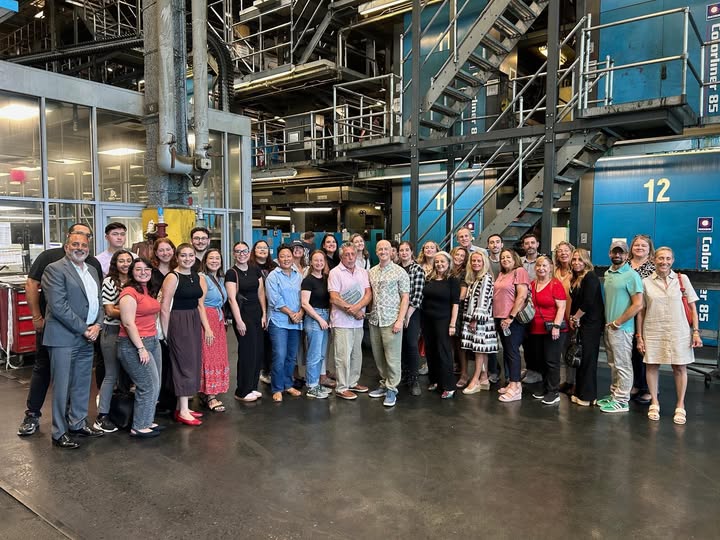I.N.T.E.R.N.
The way that you picture an intern before you have an internship yourself is pretty different than what it’s actually like.
I remember hearing upperclassmen friends stress the importance of punctuality, always asking what more you can do to help, and being outgoing, and so on. It’s clear that they were onto something, because many of these friends are now recent graduates and happily working in the advertising industry.
So in case you’re trying to imagine what life will be like a few weeks after you finally get that “We’d love to have you join the ____ team as a ______ intern!” email, here’s a breakdown of some expectations you should have for both your experience and yourself.
I – Interested. To get the job, to have fun doing it, and to connect to your coworkers, you need to be interested in whatever it is you’re doing. If you’re passionate about graphic design, don’t put yourself into an analytics internship just because you feel it will look good on your resume or fulfill a credit. Invest yourself in internships that you’re actually interested in because your employers will see and appreciate your passion, and you’ll have a lot more fun along the way.
N – Notice. When you’re at your internship, pay attention. If you’re staying keen, you’ll see how people perform certain tasks, which may be helpful when you later have to do the same thing. You should also try to notice what’s lacking; where does something need to be done, and how can you help? If your internship has a project management software, take a peek at what others are working on and ask what you can do to make their life easier.
T – Talk. You may be thinking, “Well, of course!” It’s not always that easy though. If you’re naturally introverted, the environment of the office is just a quiet one, or you’re just not sure what to say, or for whatever reason, it can be very easy to stay quiet while you work. Try to make statements or ask questions that the people at your job will appreciate. It keeps conversation flowing, and makes you seem interesting and outgoing. The same goes for asking coworkers about their day/weekend/dog/that popular show on last night/new dress/basically anything. You’ll seem nice, and you’ll both be engaged in something that makes you seem less like just an intern, and more like a real person.
E – Enjoy. Your internship is going to be tough sometimes. It’s going to keep you busy and probably overwhelm you at times. These moments will not be pleasant, BUT there is a silver lining. For each rough moment of your internship, there are going to be 50 great ones. You’ll get accolades for killing an assignment, something hilarious will happen and you’ll be in on an office joke, and you may get to experience the legendary office parties you’ve heard so much about. Fun things like this will happen, so even when the work seems tough, enjoy it. Take happiness from the idea that you’re learning, building relationships, and making things happen.
R – Resourceful. Many times I have heard those who hire/work with interns tell stories of interns who couldn’t do anything without asking a million questions about the process. If your boss asks you to write a blog post about a charity event in Philadelphia hosted by a local organization, don’t play “20 questions” asking them things that you could find out for yourself with a little googling. Sure you should find out the details that you absolutely need to even start the work, but it’s impressive if you can utilize your resources and critical thinking to make it happen on your own.
N – Knowledgeable. Hopefully the irony isn’t lost on anyone here… but it’s true. You have to be a certain level of knowledge to be a successful intern. I’m not saying that you need to be an expert in your field, especially because internships are about learning. You do have to be prepared though, and know some basics like spelling, etiquette, and background on your industry. Refresh yourself if you need to with resources like Lynda.com, checking out the Career Center’s guide to business/professional etiquette, and keeping up your industry by reading trade publications every once and a while. Whatever you do, just don’t be the copywriter (true story) who says, “Grammar just isn’t my thing.”



